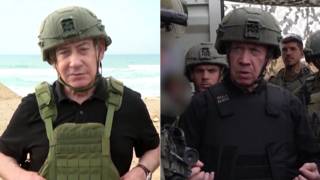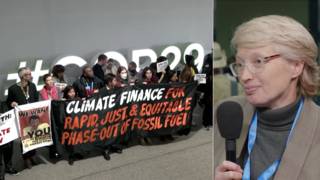HeadlinesJuly 15, 2014
Gaza Death Toll Rises to 192; Israel Accepts Ceasefire Proposal
Israel says it has accepted an Egyptian plan for an immediate ceasefire after its airstrikes on Gaza have killed at least 192 Palestinians. Israeli government spokesperson Mark Regev said the Israeli siege would continue if Hamas rejects the deal.
Mark Regev: “We said all along that our goal is to bring sustained peace and security to the citizens of Israel and to end the rocket fire on our cities. If the rocket fire nevertheless continues, if Hamas rejects the Egyptian proposal, we of course are ready to continue our operation, to intensify our operation, as need be, to protect our citizens.”
The United Nations estimates more than 80 percent of Gaza’s dead are civilians, including 36 children. More than 1,000 rockets from Gaza have hit Israel, but no Israeli deaths have been reported. We’ll have more on Gaza after headlines. [UPDATE: Shortly after our broadcast, Israel resumed its bombardment of Gaza.]
Afghanistan: 50 Killed in Market Bombing
In Afghanistan, at least 50 people have been killed in Paktika province after a car bomb exploded in a crowded market. All the dead are believed to be civilians. The blast came hours after a roadside bomb killed two employees of outgoing Afghan President Hamid Karzai in the capital Kabul. The Taliban claimed responsibility for that attack.
Russia: Subway Derailment Kills 10, at Least 100 Injured
In Moscow, Russia, a subway train has derailed, killing at least 10 people and injuring more than 100, about half of them critically. The derailment appears to have been caused by a power surge.
U.N. Pulls Out of Libya; Shelling of Main Airport Destroys 90% of Planes
The United Nations is pulling its staff out of Libya amidst some of the worst violence since the U.S.-backed ouster of Muammar Gaddafi in 2011. Heavy fighting involving rival militias has killed at least 15 people since Sunday, and shelling has destroyed 90 percent of planes at the main airport. The closures of the airport in Tripoli and another in Misurata have effectively cut Libya off from nearly all international flights.
Kerry to Consult with Obama After Iran Nuclear Talks
Secretary of State John Kerry says he is returning to Washington, D.C., to consult with President Obama following talks with his Iranian counterpart over Iran’s nuclear program. Speaking today, Kerry cited “tangible progress” on key issues, but said “very real gaps” remain ahead of a Sunday deadline. In an interview with The New York Times, Iran’s foreign minister, Mohammad Javad Zarif, said Iran could agree to freeze its nuclear capacity in exchange for sanctions relief. But Kerry refused to say if the United States would accept that deal.
U.N. Security Council Backs Aid to Syrians Without Gov’t Approval
The United Nations Security Council has unanimously approved a resolution to allow the cross-border delivery of humanitarian aid into rebel-held areas in Syria, without the Syrian government’s approval. The move could help millions of people in need of food and other basic resources after the Syrian government has been accused of blocking aid.
U.S. Deports 38 Honduran Women, Children; Honduran President Says U.S. Drug Wars Fuel Migration
The Obama administration has deported 38 Honduran women and children, some of them as young as 18 months old, in what it said was “just the initial wave” of deportations, amidst a rise in children fleeing poverty and violence in Central America. The migrants were flown to San Pedro Sula, a Honduran city with the highest homicide rate in the world. In June, children were murdered at a rate of more than one per day in Honduras. One of those deported, Angelica Galvez, spoke after arriving in Honduras.
Angelica Galvez: “They didn’t give me any rights, nor a lawyer, nor an interview, nothing. They took us in the morning, and they didn’t tell us anything, if we were going to be deported, nothing.
Reporter: “Why did you leave the country?”
Angelica Galvez: “The economy.”
In an interview with a Mexican newspaper published Monday, Honduran President Juan Orlando Hernández blamed the U.S.-backed drug wars in Mexico and Colombia for pushing drug traffickers into Honduras and fueling the violence that is helping to drive migration to the United States.
U.S., Qatar Seal $11 Billion Arms Deal
The United States has agreed to sell $11 billion worth of arms, including Apache attack helicopters and Patriot and Javelin missiles, to Qatar, in what is reportedly the largest U.S. arms sale this year. Qatar is a close U.S. ally that hosts a key U.S military base, the Combined Air Operations Center.
Citigroup to Pay $7 Billion for “Egregious” Sale of Toxic Mortgages
Citigroup has agreed to pay $7 billion to settle a federal probe over its sale of toxic mortgage-backed securities that helped sink the economy and displace millions of people. The deal includes $2.5 billion in relief for those who lost their homes. At a news conference Monday, Attorney General Eric Holder said Citigroup purposefully hid the risks it knew were associated with the loans.
Eric Holder: “The bank’s misconduct was egregious, and under the terms of the settlement, the bank has admitted to its misdeeds in great detail. The bank’s activities shattered lives and livelihoods throughout the country and also around the world.”
Holder said the settlement includes a civil penalty of $4 billion, the largest penalty to date of its kind. But in a statement, the group Public Citizen called the deal “too lenient,” noting no criminal charges have been announced.
Ernst & Young to Pay $4 Million over Lobbying Charges
The accounting firm Ernst & Young has agreed to pay more than $4 million to settle claims one of its units lobbied on behalf of two companies it had been hired to audit. The Securities and Exchange Commission accused Ernst & Young of violating rules meant to preserve independence, but did not name the other two firms.
Colombia Kills 13 FARC Rebels Ahead of Peace Talks
The Colombian military has carried out the deadliest attack against FARC rebels in more than a year, just before peace talks are set to resume. Colombian troops killed 13 rebels and captured one over the weekend in the country’s northwest. Peace talks aimed at ending the 50-year conflict are set to resume today. President Juan Manuel Santos won re-election last month after vowing to press ahead with the talks. But military operations against the FARC have continued.
Snowden Docs Reveal British Spy Agency’s Internet Manipulation Tools
The latest round of documents from Edward Snowden reveal how the British spy agency GCHQ has developed a range of secret tools to manipulate the Internet by disseminating propaganda, rigging online polls, inflating page views, conducting mass delivery of emails, and monitoring Skype users in real time. The news website The Intercept published the document, which reads like a menu of covert tools with code names like ”ANGRY PIRATE,” ”CONCRETE DONKEY,” ”STEALTH MOOSE” and ”IMPERIAL BARGE,” a term that refers to the ability to connect two unsuspecting phone users together in a call. The revelations come as the British Parliament is set to begin debate on a fast-tracked bill to expand government spying powers.
Report: Beatings by Staff “Common” at Rikers Jail, Mentally Ill Targeted
A New York Times investigation has revealed that brutal attacks by corrections officers against prisoners are “common occurrences” at Rikers Island jail in New York City. A secret internal study conducted by the city’s health department and obtained by the Times found that over an 11-month period last year, 129 prisoners at Rikers suffered “serious injuries” at the hands of corrections staff. In 77 percent of cases, the prisoner had a mental illness. In one case, corrections officers intervened when a prisoner tried to hang himself, then forced the prisoner to lie face down on the floor and pummeled him so hard he suffered a perforated bowel and needed emergency surgery. Another prisoner, Andre Lane, told the Times he was beaten so badly he nearly died.
Andre Lane: “One officer took a knuckle brace and put it on his hand, and he just started hitting me — boom, boom. And that’s when I started getting dizzy and dizzy and dizzy.”
None of the guards involved in any of the 129 cases documented has ever been prosecuted. Rikers now houses roughly the same number of mentally ill people as all 24 psychiatric hospitals in New York state combined. Watch our recent interview with Occupy Wall Street activist Cecily McMillan on conditions at Rikers during the two months she was jailed there.
24 Arrested for Anti-Fracking Blockade to Protest Cove Point Terminal
In Washington, D.C., 24 people opposed to the gas-drilling technique known as fracking were arrested Monday after blockading the entrances to the Federal Energy Regulatory Commission. They were protesting what they call the agency’s rubber stamping of the industry’s push to export natural gas. They focused on Cove Point, a liquified natural gas export terminal proposed by Dominion Resources in Maryland, which the agency is due to issue a final decision on next month. On Sunday, more than 1,000 people joined a “people’s march” against Cove Point and the boom in fracking in the United States, which they say imperils health, safety and the climate.
Missouri Set to Execute Prisoner Despite Claims of Innocence
Missouri is set to execute a prisoner despite newly surfaced evidence that he may be innocent. John Middleton is scheduled to die by lethal injection just after midnight Wednesday for three murders, but his lawyers say new evidence may implicate two other men and prove that on the day of one killing, Middleton was actually 40 miles away in a jail in Iowa. His lawyers have petitioned a federal appeals court to halt the execution.
South African Writer, Nobel Laureate Nadine Gordimer Dies at 90
The South African writer Nadine Gordimer has died at the age of 90. She wrote more than two dozen works of fiction, three of which were banned under the apartheid regime. In 1991, she won the Nobel Prize for Literature. In a statement, her family said her proudest moments included her testimony at a 1986 trial in defense of 22 members of the African National Congress who were accused of treason. The Nobel committee particularly highlighted her 1981 novel “July’s People,” about a black servant who rescues his white employers from civil war. Gordimer spoke about that novel during a PEN World Voices event at Cooper Union in 2007.
Nadine Gordimer: “I was looking at what was very likely at the time, it seemed to me, to happen, that we were in that country, we were lemmings right at the edge of the cliff, ready to fall over into a civil war — this of course precipitated by the white regime there and naturally answered by black resistance. So ’July’s People’ was indeed my look into a possible horrendous future and what a blessing, all the gods that may be, that it didn’t happen. We avoided it.”
Gordimer died in her sleep at her home in Johannesburg, South Africa, on Sunday.
Alice Coachman, 1st Black Woman to Win Olympic Gold, Dies at 90
Alice Coachman, the first black woman to win an Olympic gold medal, has died in Albany, Georgia, at the age of 90. Coachman won gold for the United States in the high jump competition at the 1948 London Games and was honored at the White House before returning to the segregated South.
Most popular
- 1
- 2
- 3
- 4
Non-commercial news needs your support
Please do your part today.











Media Options